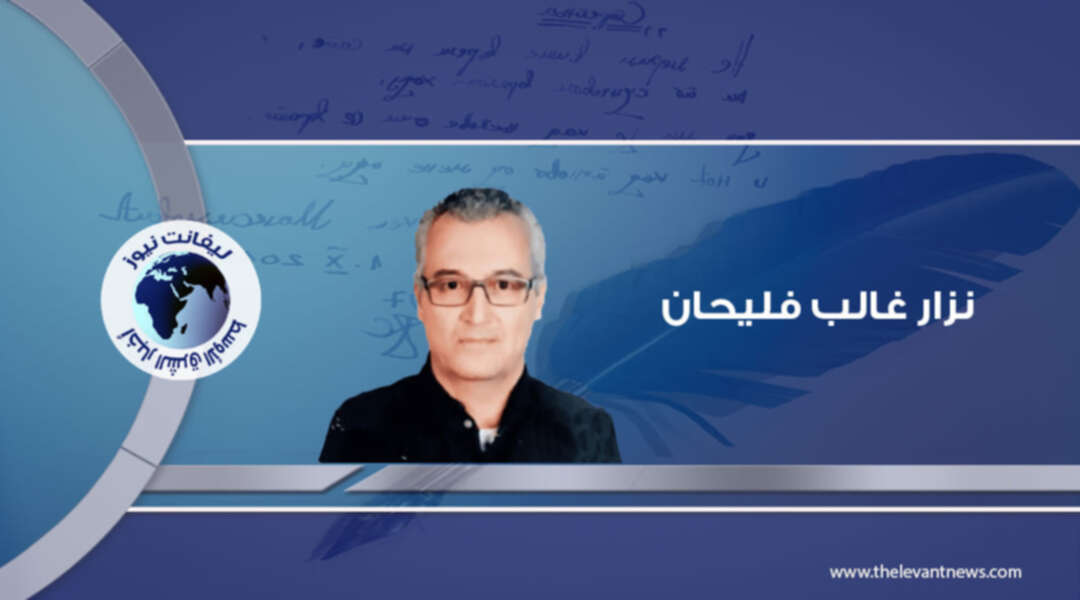-
Syrians... From Revolution to State

The aim of building a new Syria, the noble goal for which the Syrian people's revolution began in March 2011, comes as a necessary outcome and a next step towards overthrowing the regime that has killed the state in all its components for more than sixty years.
The moment of the fall of the criminal Assad family regime is closely connected to the moment of starting to build the Syrian state, only separated by the joyful victory and freedom celebrations of the Syrian people that began on the morning of December 8, 2024, and continue to fill the squares.
To answer the question of state, one must first address the question of identity, leading to the pivotal question: What does the Syrian people want?
At first glance, this question seems simple, and the answer appears easily attainable. However, reality has begun to reveal different aspects as a result of the resounding collapse of the regime amid the intensified power struggle in the Middle East, and under subjective circumstances characterized by the political desertification imposed by the founding father’s gang of repression and exclusion, and the son who has entrenched it, along with the fragmentation that has afflicted Syrians. This fragmentation is a direct consequence of the crimes committed by the fallen regime, including murder, arrest, disappearance, and displacement, accompanied by forced displacement and exile.
All of this has established criteria and concepts that are far removed from building a unified Syria, and also far from formulating an identity that reflects the components of the Syrian people—a people that has been killed by hollow slogans and dispersed by foolish alliances, retreating into themselves after losing hope for solutions that grant them true citizenship free from regionalism, favoritism, and quotas.
This is aside from the underlying local intentions of some that align with regional and international aspirations aimed at dividing Syria into sectarian mini-states, facilitating their control and absorption in subsequent moments of weakness, a scenario being worked on for decades.
Here, the role of the current administration of Syria becomes prominent—an administration that we recognize faces the burdens of rebuilding a state in which the fleeing family regime left no stone on stone, and the burdens of convincing the Syrian people of its legitimacy, as well as reassuring neighboring countries and the world that it is moving towards building a unified Syria with the participation of all Syrians, regardless of their sectarian and national affiliations. However, this administration simultaneously bears the responsibility for any failure in achieving this, as the way it manages the transitional phase will determine the outcomes at the national level, especially since this administration is currently the strongest link in the Syrian scene, the link upon which hopes are pinned. As it gradually gains the trust of the Arab world and beyond, it must use that as a foundation for accomplishing the establishment of national institutions and drafting a constitution that achieves justice and equality for all Syrians.
As for the role of the Syrian people in this unique historical moment that cannot be repeated, it lies in powerfully engaging in the process of rebuilding state institutions by crystallizing their intellectual and political currents and forming their parties and unions, so they are present for any democratic entitlement, ensuring no harmful void is left, and not missing the opportunity to participate in determining their destiny and the destiny of Syria, while thwarting the opportunistic climbers and those with malicious intentions from taking Syria to a place of no return.
Levant: Nizar Ghaleb Fleihan
You May Also Like
Popular Posts
Caricature
BENEFIT Sponsors BuildHer...
- April 23, 2025
BENEFIT, the Kingdom’s innovator and leading company in Fintech and electronic financial transactions service, has sponsored the BuildHer CityHack 2025 Hackathon, a two-day event spearheaded by the College of Engineering and Technology at the Royal University for Women (RUW).
Aimed at secondary school students, the event brought together a distinguished group of academic professionals and technology experts to mentor and inspire young participants.
More than 100 high school students from across the Kingdom of Bahrain took part in the hackathon, which featured an intensive programme of training workshops and hands-on sessions. These activities were tailored to enhance participants’ critical thinking, collaborative problem-solving, and team-building capabilities, while also encouraging the development of practical and sustainable solutions to contemporary challenges using modern technological tools.
BENEFIT’s Chief Executive Mr. Abdulwahed AlJanahi, commented: “Our support for this educational hackathon reflects our long-term strategic vision to nurture the talents of emerging national youth and empower the next generation of accomplished female leaders in technology. By fostering creativity and innovation, we aim to contribute meaningfully to Bahrain’s comprehensive development goals and align with the aspirations outlined in the Kingdom’s Vision 2030—an ambition in which BENEFIT plays a central role.”
Professor Riyadh Yousif Hamzah, President of the Royal University for Women, commented: “This initiative reflects our commitment to advancing women in STEM fields. We're cultivating a generation of creative, solution-driven female leaders who will drive national development. Our partnership with BENEFIT exemplifies the powerful synergy between academia and private sector in supporting educational innovation.”
Hanan Abdulla Hasan, Senior Manager, PR & Communication at BENEFIT, said: “We are honoured to collaborate with RUW in supporting this remarkable technology-focused event. It highlights our commitment to social responsibility, and our ongoing efforts to enhance the digital and innovation capabilities of young Bahraini women and foster their ability to harness technological tools in the service of a smarter, more sustainable future.”
For his part, Dr. Humam ElAgha, Acting Dean of the College of Engineering and Technology at the University, said: “BuildHer CityHack 2025 embodies our hands-on approach to education. By tackling real-world problems through creative thinking and sustainable solutions, we're preparing women to thrive in the knowledge economy – a cornerstone of the University's vision.”
opinion
Report
ads
Newsletter
Subscribe to our mailing list to get the new updates!




















